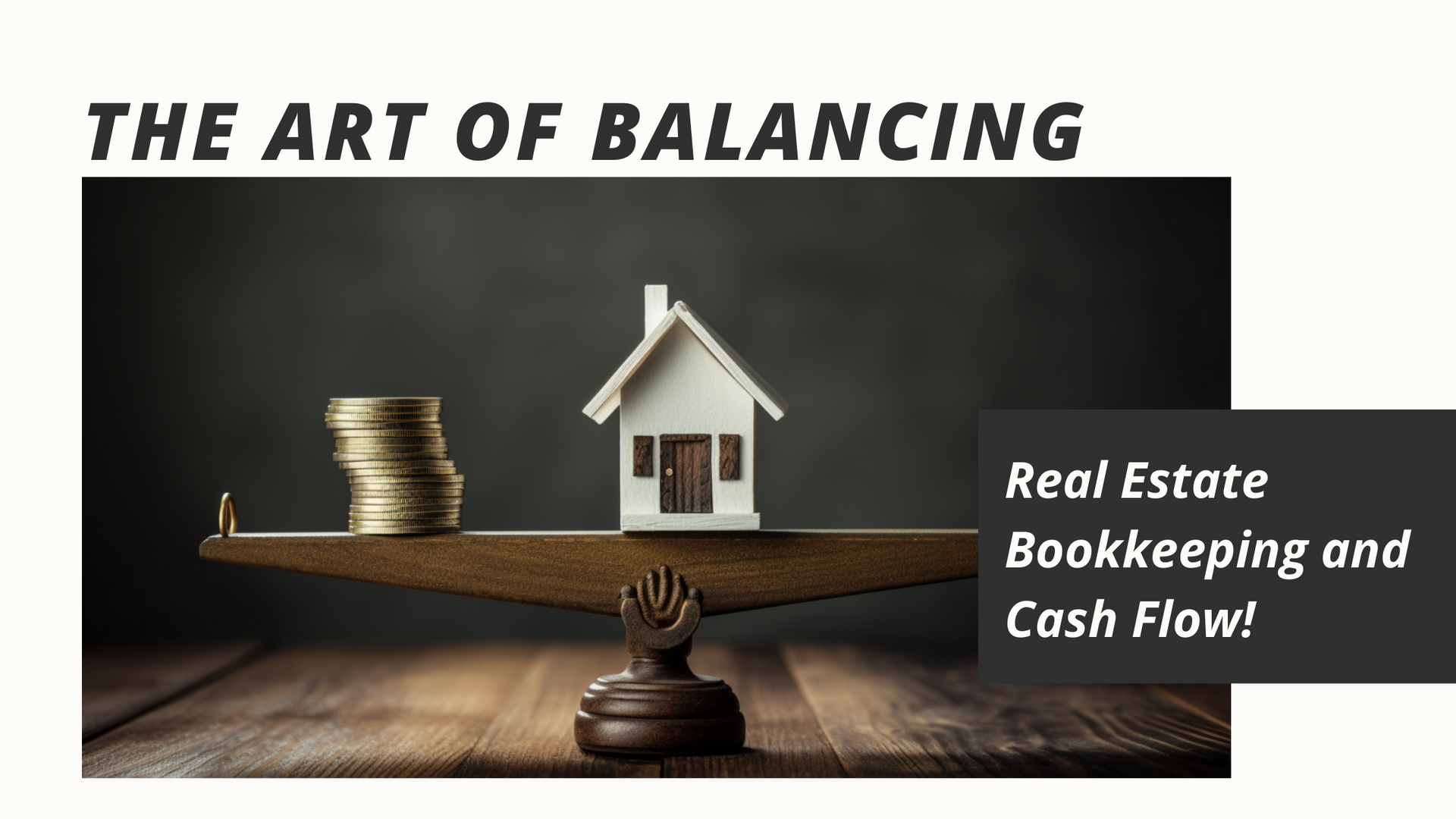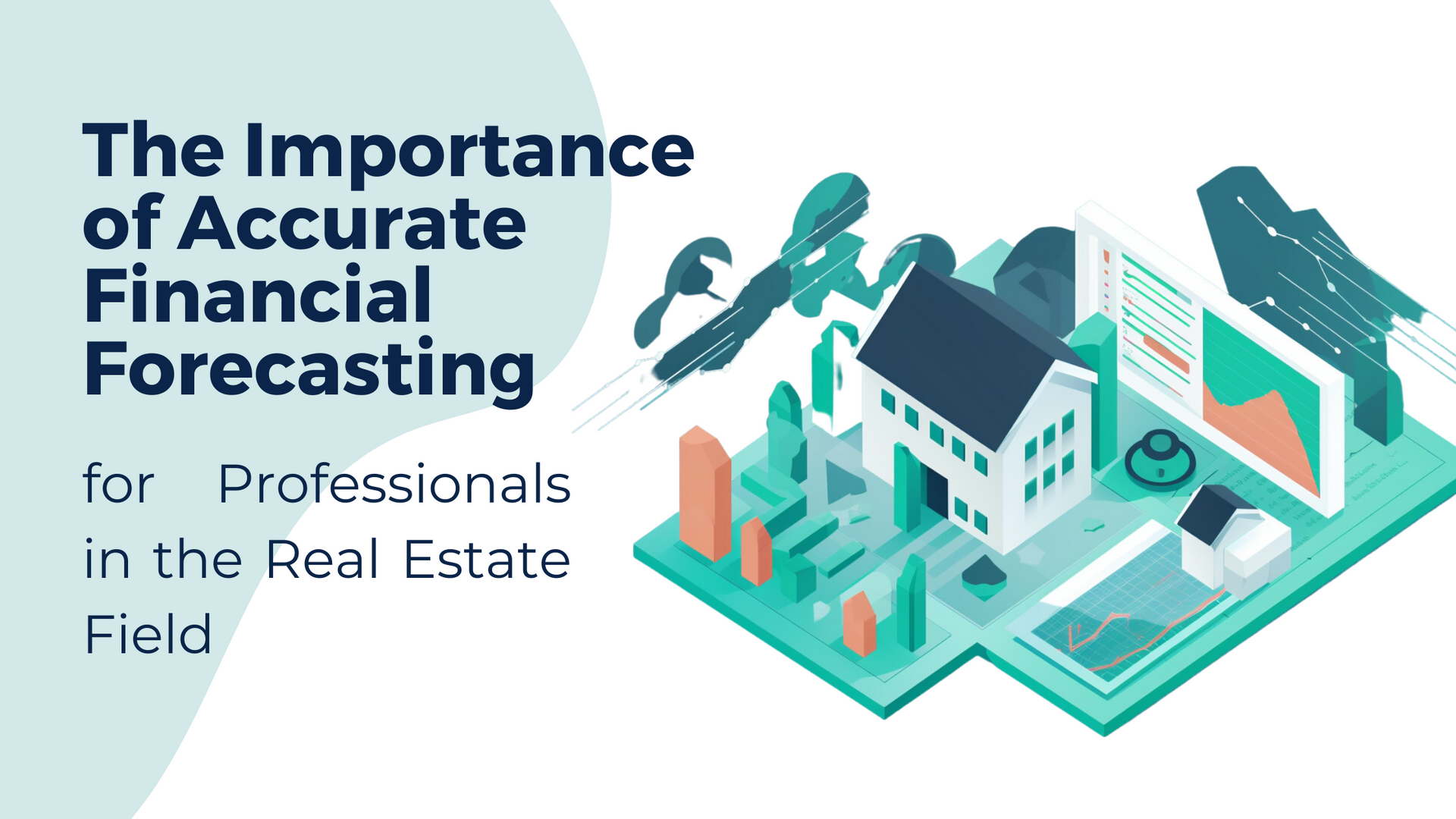Real Estate Bookkeeping Hacks That Will Change Your Perspective
Real Estate Bookkeeping Hacks That Will Change Your Perspective

Introduction
Real estate can be a labyrinth of transactions, figures, and paperwork, but it doesn't have to be. Welcome to an article that aims to transform your approach to real estate bookkeeping. These carefully curated hacks will not only simplify your financial management but also infuse a fresh perspective on how you view bookkeeping in your real estate business.
Hack #1: Automate Your Transactions
In this era of digital transformation, automation is no longer an option; it's a necessity. The first step towards revolutionizing your real estate bookkeeping is to automate your transactions. There's a range of software available that can help you do just that. From automatically updating your books to preparing financial reports, automation can drastically cut down your work hours and eliminate human error. Though automation helps ease the day to day tasks it does not mean it is error-proof. Always have checkpoints to determine the legitimacy of each step.
Sub-hack 1.1: Choosing the Right Bookkeeping Software
It's not enough to just choose any bookkeeping software; you need one that aligns with your specific business needs. When selecting software, consider factors like usability, features, cost, and customer support. There are plenty of options out there such as QuickBooks, Xero, and FreshBooks. We'll delve deeper into this subject in the following sections.
Hack #2: Maintain Separate Accounts
You might wonder, "What's the big deal about having separate accounts for personal and business transactions?" Well, let me assure you, this simple distinction can work wonders in simplifying your bookkeeping process. Plus, separating the two will help you and your business ensure you are legally operating. Having separate accounts prevents any confusion when sorting through transactions, ultimately saving you a ton of time and hassle. Plus, it makes tax time a breeze!
Sub-hack 2.1: Leverage Business Credit Cards
Business credit cards are a hidden gem when it comes to maintaining separate accounts. They are a convenient tool for handling all your business transactions and often come with rewards or cash-back offers. Credit cards always seem daunting to business owners because they do not want debt associated with their business. Having debt will help catapult you in the right direction. It just has to be well-managed and controllable. The rich don't stay rich by only using their money, they leverage other rich people's money to do it for them.
Hack #3: Regular Reconciliation
Reconciliation can be a bit like flossing your teeth—easily neglected, but vital for good health, or in this case, financial health. Regularly reconciling your accounts will help keep your financial data accurate and up-to-date. This step will help you catch any errors, man-made or bot-made.
Sub-hack 3.1: Schedule Reconciliation
"Out of sight, out of mind" might be a fitting phrase here. The trick to regular reconciliation is to schedule it. By making it a part of your monthly routine, you'll ensure that this critical task never falls by the wayside.
Hack #4: Master the Art of Categorization
In the realm of bookkeeping, categorization is your best friend. Proper categorization of your income and expenses can provide you with valuable insights about where your money is coming from and where it's going. In the real estate realm, categorizing in detail will help you see what clientele you traditionally worked with that year. Helping you understand what marketing costs you can spend your time on for the future, buyer heavy means more seller-heavy advertisements. This helps you make more knowledgeable spending habits.
Hack #5: Embrace Cloud-Based Solutions
While many have already jumped on the cloud computing bandwagon, some are still hesitant to take the leap. Let me tell you, the cloud is not a passing trend. It’s a powerful tool that ensures your bookkeeping is accessible, secure, and constantly backed up. Plus, it allows for seamless collaboration between team members. Most entrepreneurs believe that paying the monthly subscription for a cloud-based system will result in higher annual expenses. However, over the long run, not adopting a cloud-based system and subsequently having to contract another company to manage that system on a secure server can lead to even greater costs compared to opting for the cloud-based service route.
Sub-hack 5.1: Explore Top Cloud-Based Bookkeeping Solutions
Researching different cloud-based solutions can be a daunting task. But hey, don't you worry! Some top-notch options include QuickBooks Online, Xero, and Zoho Books. These platforms offer a myriad of features such as automated invoicing, real-time reporting, and multi-user access.
Hack #6: Keep an Eye on Cash Flow
Cash flow is the lifeblood of any real estate business. To keep your business thriving, it's crucial to monitor your cash flow regularly. Effective cash flow management can help identify potential issues before they become serious problems. It’s like a litmus test for the financial health of your business.
Sub-hack 6.1: Employ Cash Flow Forecasting
One efficient way to monitor your cash flow is by using forecasting techniques. This allows you to predict potential cash inflows and outflows, ensuring that you're never caught off guard by a cash crunch.
Hack #7: Don’t Shy Away from Professional Help
While it's possible to handle your bookkeeping in-house, sometimes it can be more efficient and cost-effective to seek professional help. An experienced bookkeeper can not only streamline your processes but can provide valuable insights into your financial performance, and take a significant load off your shoulders.
Sub-hack 7.1: Choosing the Right Bookkeeping Service
When choosing a bookkeeping service, consider their reputation, expertise in real estate, and the services they offer. Remember, it's about finding a partner who can make your financial management a cakewalk.
Meet Olive Branch Bookkeeping, Inc. With their reputation for excellence, vast expertise in real estate, and comprehensive range of services, they stand out as a perfect partner. Their experienced team can help transform your financial management process from an uphill battle into a walk in the park.
Remember, it's not just about delegating tasks; it's about collaborating with a trusted partner who can guide you towards financial success in the real estate industry.
Hack #8: Understand Your Tax Deductions
Navigating the world of tax deductions can be tricky, but with a firm understanding, it's a realm that holds significant savings. From mortgage interest and property taxes to insurance and maintenance expenses, being aware of all possible deductions is key to minimizing your tax liabilities.
Sub-hack 8.1: Maintain Thorough Records
Accurate and detailed records are paramount when claiming tax deductions. So, be sure to keep receipts, invoices, and any other relevant documentation. After all, it's better to be safe than sorry, especially when it comes to taxes!
Hack #9: Plan for Major Expenses
Major expenses, such as property renovations or new property acquisitions, can have a significant impact on your cash flow. To avoid financial stress, it's crucial to plan for these expenses in advance. Think of it as paving a smooth road for your real estate journey.
Sub-hack 9.1: Create a Dedicated Savings Fund
Setting up a dedicated savings fund is an effective strategy to prepare for major expenses. Even small, regular contributions can add up over time, providing a financial cushion when you need it most.
Hack #10: Implement Regular Audits
Regular audits are like regular health check-ups—they help ensure everything is running smoothly and catch any potential issues before they escalate. They're an essential part of maintaining healthy financials for your real estate business.
Sub-hack 10.1: Use a Checklist
Make your auditing process easier and more efficient by using a checklist. This ensures you cover all bases and leaves no room for oversight. And let's be honest, who doesn't love the satisfaction of checking off a to-do list?
Hack #11: Track Every Expense
Small expenses may seem insignificant on their own, but when they accumulate, they can significantly impact your bottom line. By tracking every expense, no matter how minor, you'll gain a clearer picture of your overall spending and identify areas where you can cut costs.
Hack #12: Establish Financial Goals
Goals are what drive us forward, and it's no different when it comes to your real estate business. Establishing clear financial goals will not only provide direction but also serve as a benchmark against which you can measure your progress.
Sub-hack 12.1: Break Down Your Goals
While long-term goals provide a vision, short-term goals pave the path to get there. Break down your financial goals into achievable, bite-sized pieces. This makes the journey less daunting and more manageable.
Hack #13: Ensure Compliance with Laws and Regulations
In the real estate industry, compliance with laws and regulations is critical. Ensure your bookkeeping practices adhere to these standards to avoid legal implications. Your bookkeeper should have a network of CPAs and Tax professionals they work with who know the IRS tax code inside and out and can help alleviate some of the tax pains all of us feel!
Sub-hack 13.1: Stay Informed
Laws and regulations often change. Staying informed about these changes and adjusting your bookkeeping practices accordingly is crucial for maintaining compliance.
Conclusion
And that is your exclusive sneak peek into the world of real estate bookkeeping hacks. Each one is a step towards financial success, but why venture alone? Olive Branch Bookkeeping, Inc. is ready to join you in your journey. They offer more than just services—they're your partner, your guide, and your key to unlocking efficient financial management in real estate.
So, here's the real question: Are you ready to revolutionize your perspective and take control of your real estate finances? Give Olive Branch Bookkeeping, Inc. a ring. Because with them, your financial success is not a possibility, it's a guarantee!
Disclaimer : Olive Branch Bookkeeping, Inc is a Bookkeeping firm and not a tax professional, though we do partner with many tax professionals, we always advise you to seek legal tax advice.




